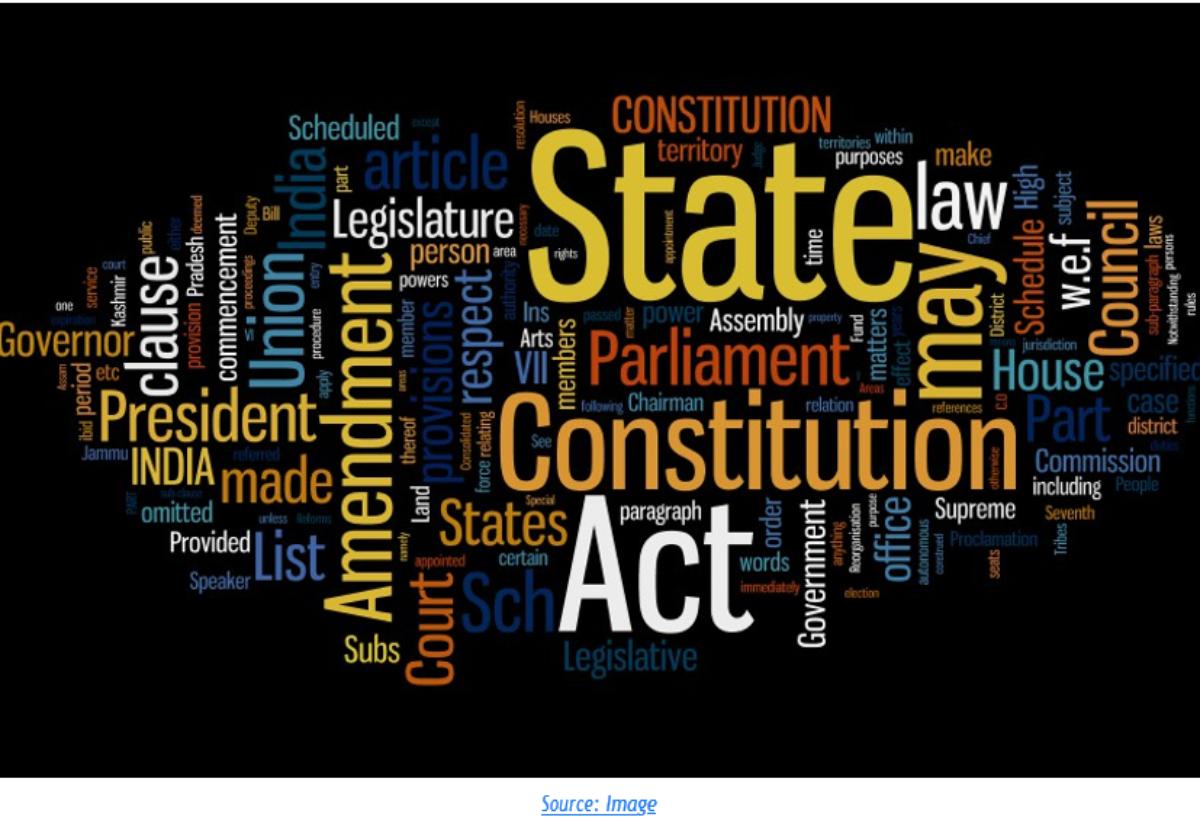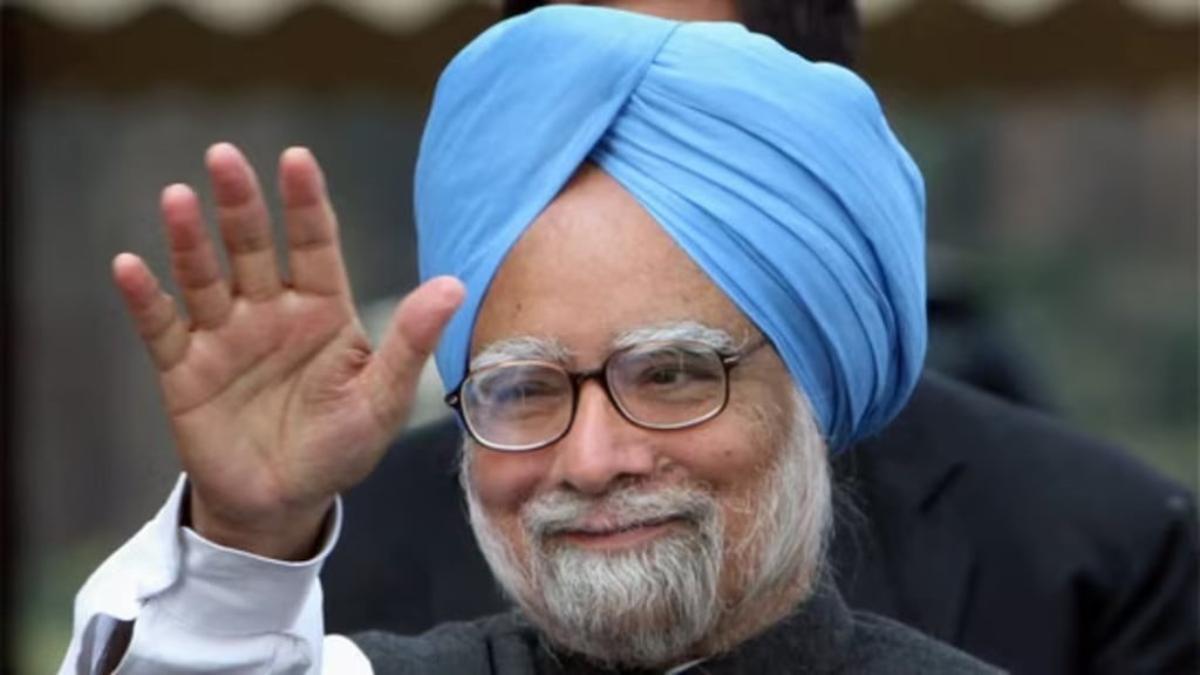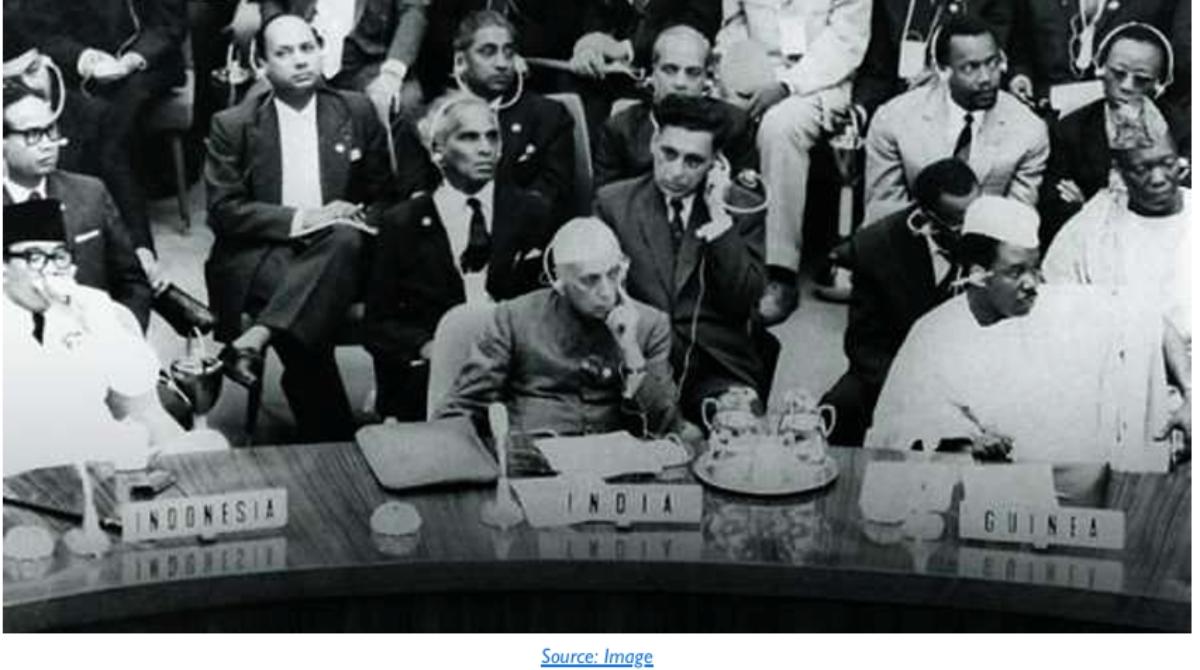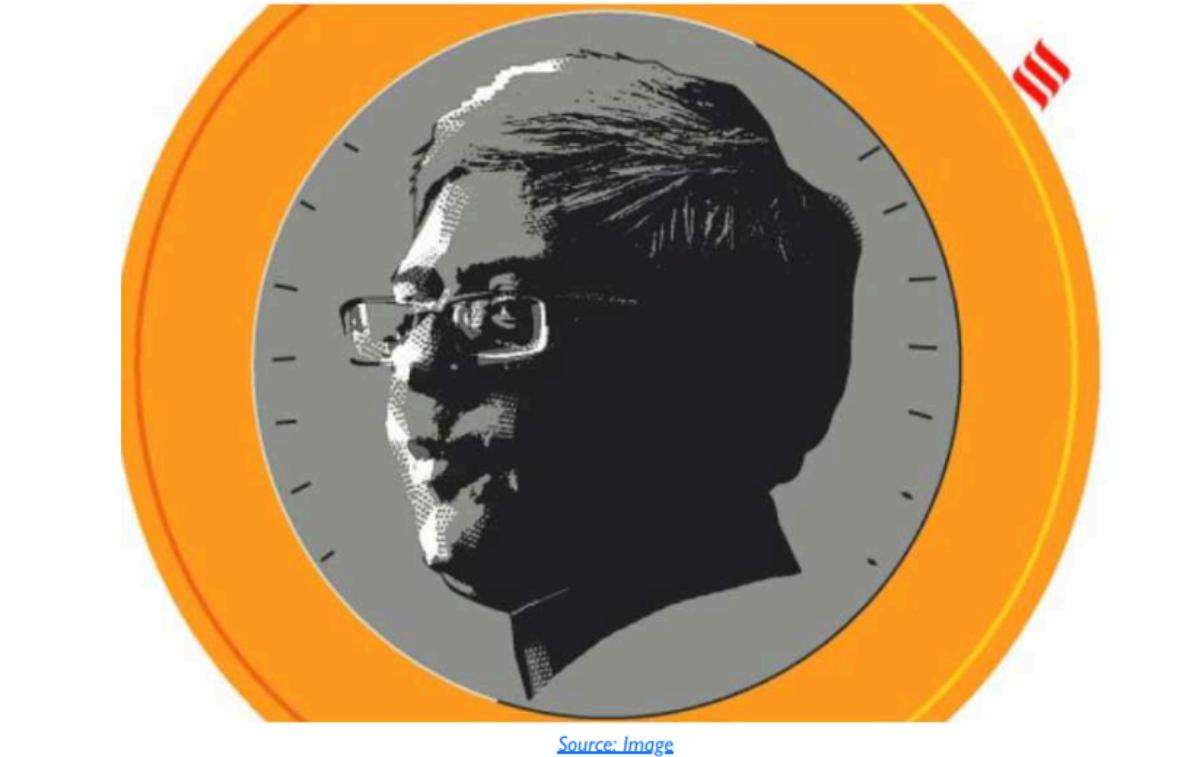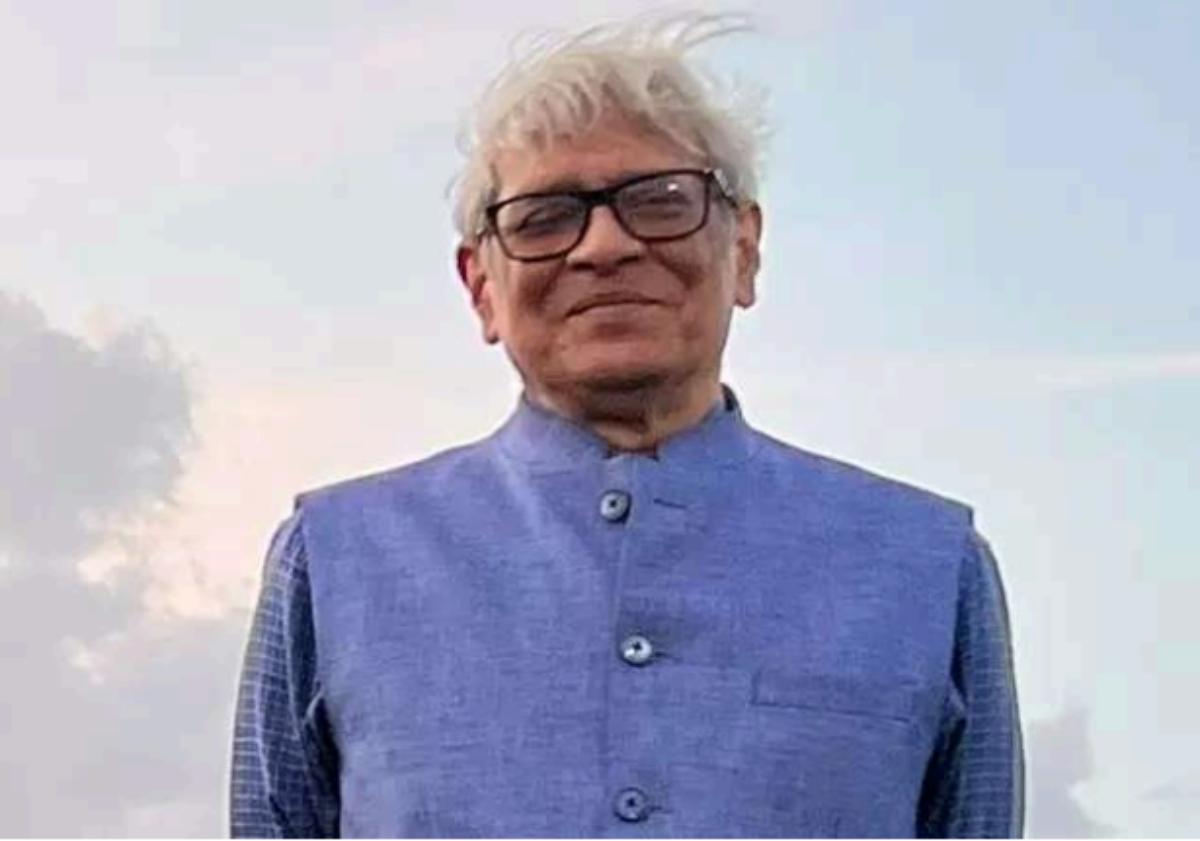If majoritarianism is a threat to India’s social cohesion, a greater threat is the view that some other generation will rise to save our constitutional values?
Significance of the Study and Background
This study is not about politics in India nor is it about the elections or its outcomes. The study aims at informing young Indians to examine possibilities, methods and provisions available to all the States of India to create public knowledge of our constitutional values and implement a policy for building social cohesion by disseminating constitutional values in the society.
Ever since adoption of the Indian Constitution in 1950s, it was assumed that the State would uphold our country’s constitutional values. But it is not sure if any state has made a formal social cohesion policy that disseminates our Constitutional Values through whole of the society?
Background
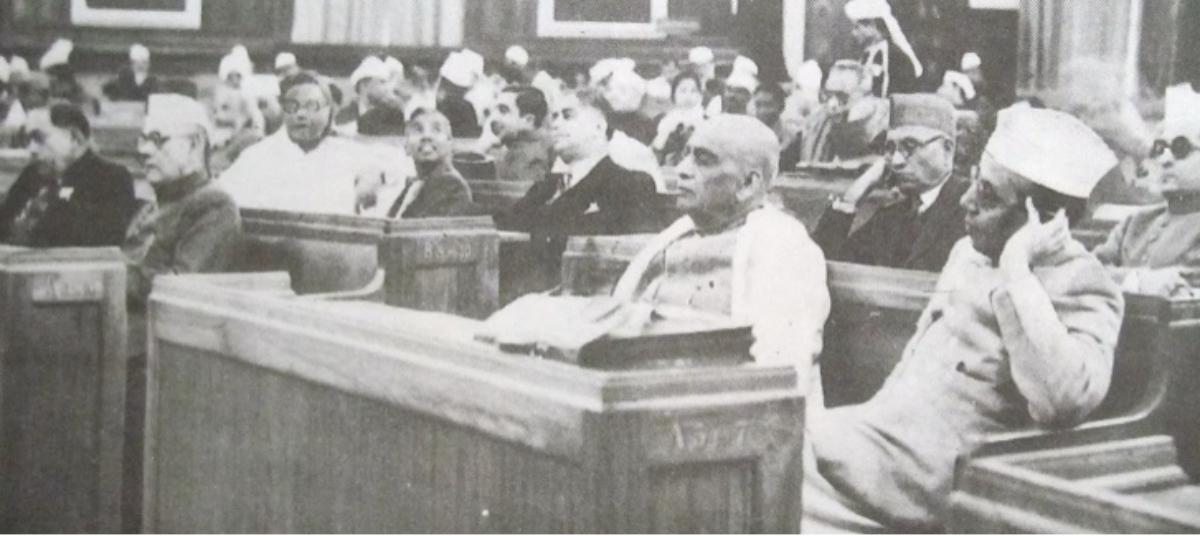
India’s constitutional values emerged from two streams of spiritual and intellectual thought: teachings from the Bhakti movement and political theories of the Enlightenment. Both these streams had expressed serious concerns of exploitative nature of societies; caste or class hierarchies that manipulated the weak through fear, coercion and unjust punishments.
Despots and monarchs subjugated fellow humans, who eked a life of servitude that bordered between misery and survival. These social challenges developed ideas that propagated values of justice, economic relief and equality for all humans; liberty of belief and freedom of worship, religious amity to develop fraternity of communities.1
The philosophers of the Bhakti movement and Enlightenment also had convergences in finding roots of tyranny of social oppression lay in the nature of man: avarice for wealth; greed for grasping power; to dominate the downtrodden; jealousy and arrogance, etc.
In 18th to 20th Centuries, a modern view emerged in India on secular values to address religious taboos and prejudice, communal intolerance, caste repression, social inequities, opportunism and gender discrimination etc.
These streams of thoughts shaped the values of India’s social reformers and thinkers for social justice, which converged with India’s freedom struggle from colonial rule. That is how and why the principles India’s secular constitution realised that shape of its governance has to be limited by and predicated on: accountability of rulers to the rule of law; equal justice for all; equal respect for all religions, faiths and belief systems that were practiced in India for centuries; sovereignty of citizens is expressed through popular mandate; separation of powers between the Executive, the Judiciary and the Legislature for institutional checks and balances to ensure that no individual or parts of government could acquire absolute powers, which would be just a step away from tyranny.
Independence of India was preceded by the partition of India driven by calls for religious majoritarianism and separatism. Those who wanted to live in amity and harmony as citizens with equal rights, with equal access to justice and equal freedom to worship, despite the differences in cultures, religions, sects and castes, chose to become citizens of India.
The framers of Indian Constitution were sensitive to these differences and choices people make. They were apprehensive of polarization in societies and divisive politics would unleash majoritarianism and an action- reaction spiral of violence, which would undermine stability in the country.
Two recent experiences had contributed to this apprehension: one was the German experience of how easily democratic processes could be usurped by a dictator by arousing passions of communal intolerance, hate and fear. Majoritarian leaders can easily take control the entire society through demagoguery and generating fear of communalism.
1 Maxim Dias and D Jeevan Kumar, Religion and Socio-secular Engagement, in Discovering New India, A Ravindra and Priyanca Mathur “…the movement of Basavanna, Naryana Guru, Swami Vivekananda and many others have all been motivated by the religious belief of equality and fraternity.” Jain University Press Bengaluru. P. 45. In their own time, Guru Nanak, Baba Farid, Kabir and many others Saints of the Bhakti movement, preached Liberty or freedom of worship and Justice.
Political violence is easy to arouse in a society which has religious, linguistic and cultural diversities. Majoritarian politics called for creating Pakistan resulted in riots to partition India. It was the most horrible violence experienced in the history of sub-continent, ever. During the Indian Constituent Assembly debates, the ravages that majoritarian politics can cause in a society and its anti-dote of secular Constitution were discussed.
During the debate on 9 December 1948 Prof. N.G. Ranga stated in the Constituent Assembly: that if a state cannot restrain its majority community from inflicting private punishment, it does not deserve to exist: “ … it is true the majority can go mad, and therefore the people have to be protected from their tyranny. A State which is not prepared to restrain its own majorities, who believe in inflicting private punishment upon various people, such a State does not deserve to exist. If the majority is organized and it begins to function through the State itself, then who is to guarantee and uphold the fundamental rights? It might be said that the Supreme Court would be expected to do so. But even the Supreme Court might be set at naught, as it happened in Nazi Germany and Fascist Italy ”
Introduction
A summary of the two parts of the paper provides a brief for the youth of India to take the country forward to inform, educate and enlighten our people that even though the gift of Constitution was delivered to the country in 1952, the need to explain all our citizens, our Constitutional values and principles, on which our constitutional morality and social ethics are based, remains undelivered.
Unless the younger generations to follow take up the challenge of building social cohesion in our communities by imbibing Constitutional values, the promise of freedom remains undelivered.
Although principle of sovereignty of the people, gives us the right to choose our representatives, but lack of knowledge of our constitutional values and principles, results in this individual choice to be decided by the community’s impressions.
Suitability of the representative is assessed on the basis of a candidate’s oratorical skills; ability to hoodwink with promises of subsidies, subtle use of religious piety and fear of the ‘other’ are among the techniques used to mislead the people.
Ever since the founding of our Republic, our people’s ability to question the capabilities of our elected representatives or evaluate their sincerity or their performance, has remained neglected.
As low levels of public knowledge of unfair electoral practices results in indifference in the society towards low levels of public probity. How long should the people their governments indulge political parties to carry on their mass deception? As long as party in the Government does not realise that such unethical practices are example setting for the society and the generations to follow.
The youth of the country should identify ways to the society to strengthen, imbibe and deepen knowledge of our constitutional values and principles. Rising polarisation in the society is widening the existing social divisions of religion, caste and ethnicity. Four broad aims for capacity building on constitutional knowledge are identified:
- Convert prevailing tensions of social divisions to norms of social cohesion;
- Building stability for internal and national security;
- Building Social trust and cooperation for economic development, trade and commerce;
- Uphold Constitution to protect diversity, develop social justice, promote
Would strengthening public understanding of Constitutional values and disseminating this knowledge throughout the society, facilitate the above mentioned aims? Would serving the above aims provide inclusive and just governments; stability, security and safety of Indians; enable building trust and ethical business practices for socio-economic growth?
Majoritarianism and its Consequences

Majoritarian politics assumes the Government has to yield primacy of public preferences to the largest majority, and that it has the right to decide matters that affect the whole of society. Public perception often conflates majoritarianism with electoral majority, which is decided on the basis of popular mandate.
Majoritarianism begins with seizing control of State power through inferiorisation of target community, spread hate and fear to provoke reaction in order to consolidate their majority vote bank.
On acquiring state power, majoritarian politics then begins to undermine Constitutional Values, before it begins its assault on the very principles of Constitutionalism. In its purpose and intent, majoritarianism is unethical and unjust.2 It follows and accepts unfair practices, as long as end objectives of power are served.
That is why the framers of India’s Constitution in their wisdom, instead of yielding to majoritarian influences, chose secular values to enshrine in our Constitution, namely: liberty and freedom to worship one’s faith; equality in opportunities for all; fairness and justice for all under law; amity between different backgrounds to build fraternity among diverse Indian communities. Even to this day, these values offer the best protection to all citizens who hail from different parts of India and endowed with different socio-economic levels.
Secularism
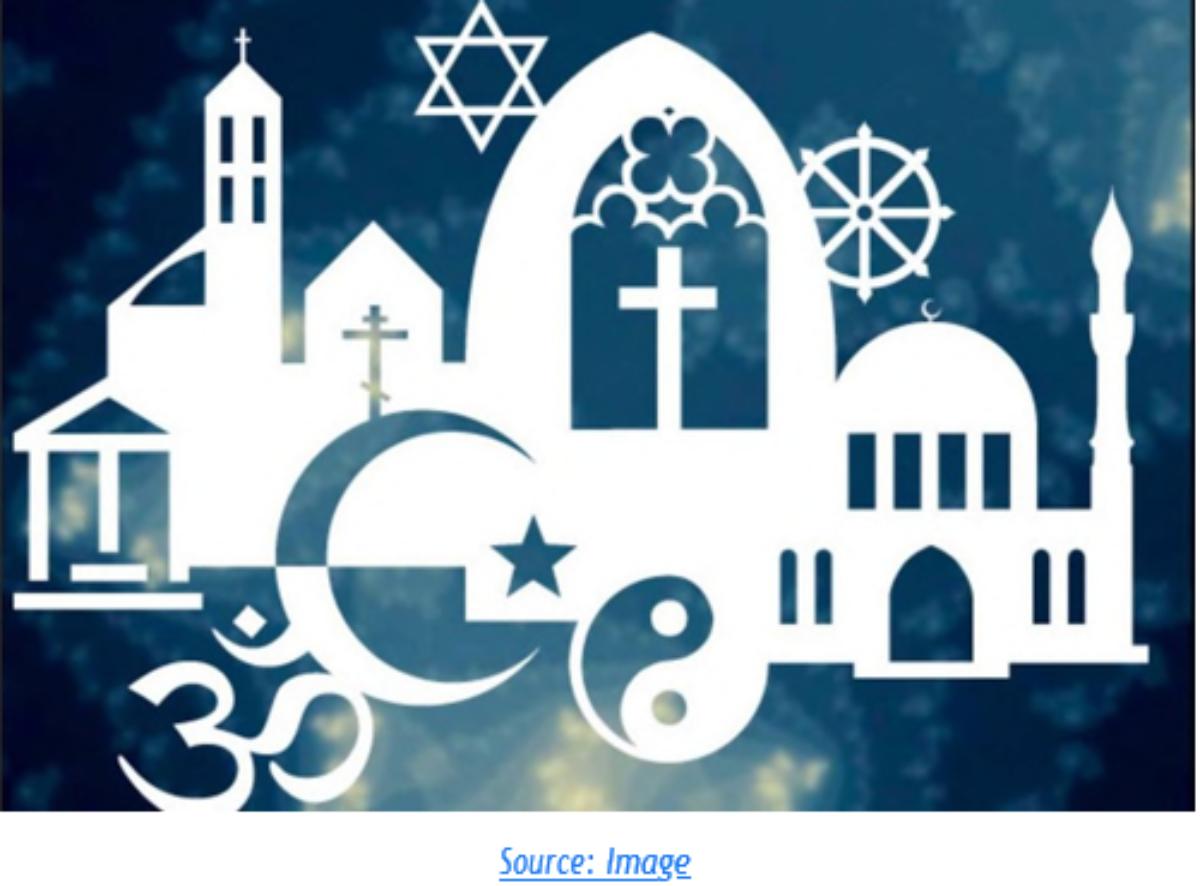
It is lately being criticized as irrelevant constitutional value, and anti religious value which should be removed as a Constitutional value.
Despite the fact that Indians are deeply religious people, the framers of the constitution found convergence of social reforms with secular civil rights.
And in doing that, the state realised that it was essential to maintain principled equidistance from all religions.3
Over period of three decades secularism was discussed as a constitutional value, which obligated the State and the Society to hold all religions in egalitarian respect, and to protect minorities against inter-religious communalism of the majority.
Secularism also protects lower castes against intra-religious intra-community caste discrimination and gender injustices within the same religion. As caste not only divides, but denies equality within the same religion, it also discriminates access to equal opportunities. Secularism protects the oppressed both against both inter- community repression and intra-caste oppression. Our constitutional morality assumes that an individual’s religion is a personal matter of citizens, to be respected and venerated in private. Whereas, constitutional values and constitutionalism are the public faith of all Indian citizens.
2 Ajai Kumar Singh, “Concerning Religion” in Discovering New India, A Ravindra and Priyanca Mathur, “majoritarianism is undemocratic and a retrograde idea” Jain University Press, P.76
3 Rajeev Bhargava, Between Hope and Despair, Bloomsbury 2022. P.122,314
Social Cohesion

There is a need to understand how and why secular constitutional values can build social cohesion in a land of religious, linguistic, cultural and ethnic diversities. Social cohesion obliges the state to minimize socio- economic disparities between communities.
A socially cohesive society is one where all citizens have an equal sense of social inclusion in public affairs; an equal sense of belonging to the nation despite culture differences; recognition of equal measure of civil rights; equal pride and participation in nation building; and equal obligation of loyalty to India’s multi-cultural national identity.
Legitimacy of these rights is ensured by constitutional provisions, with which a country builds citizenship solidarity, social relationships and participation in social cohesion initiatives required for common national purpose and nation’s security.
Majoritarian politics assumes the Government has to yield primacy of public preferences to the largest majority, and that it has the right to decide matters that affect the whole of society. Public perception often conflates majoritarianism with electoral majority, which is decided on the basis of popular mandate.
Majoritarianism begins with seizing control of State power through inferiorisation of target community, spread hate and fear to provoke reaction in order to consolidate their majority vote bank.
On acquiring state power, majoritarian politics then begins to undermine Constitutional Values, before it begins its assault on the very principles of Constitutionalism. In its purpose and intent, majoritarianism is unethical and unjust. It follows and accepts unfair practices, as long as end objectives of power are served.
Principles of Constitutionalism
Social contract in democratic states are established on the basis of principles of constitutionalism which include, among others: separation of powers in the state to ensure checks and balances so that no branch of the state or a person acquires immense and arbitrary powers.
Which if unchecked, can lead to absolute power to the Executive authority, abuse of power or even authoritarian rule or tyranny. Executive authority has to be balanced by an independent judiciary, the legislature and independent statutory institutions.
The social contract between the society and the state makes the Government responsible for formulating policy; the legislature is responsible for legitimating the policy. Both these branches provide a system of accountable governance to the electorate, on whose trust these powers are exercised.
However as sovereignty is reposed in people’s choice, the powers of the government has to be limited by laws, the tenure of the Government has to be limited by the period of popular mandate. That is why rule of law has to be based on constitutional values and principles that obliges the government to respect and uphold individual and community rights. Compliance with these responsibilities or lack of it are ensured and adjudicated by an independent judiciary.
Constitutional Values
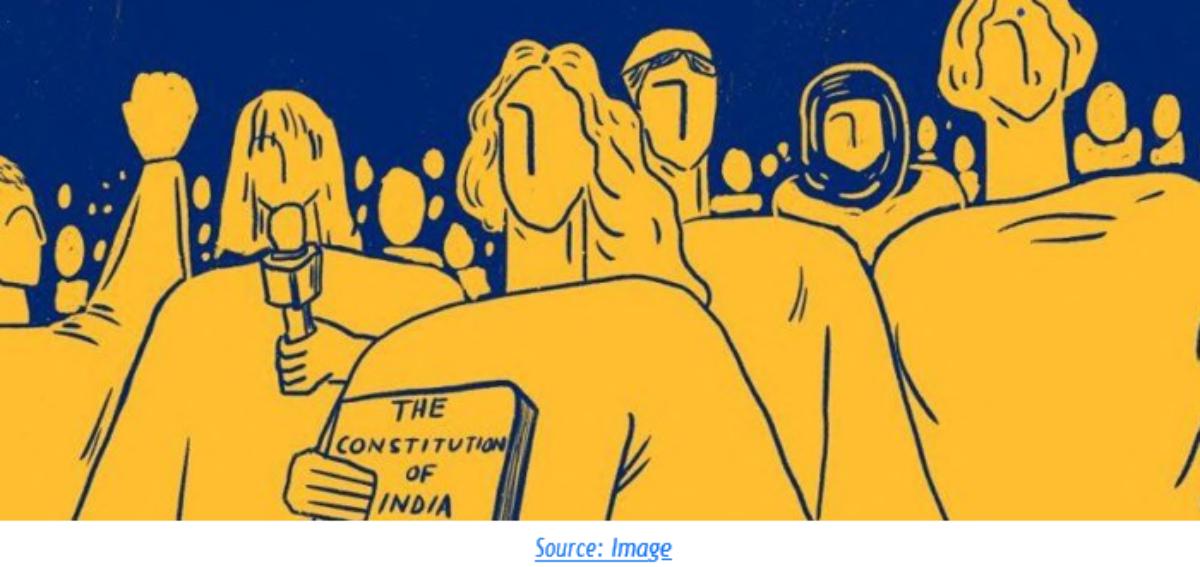
Whereas, constitutional values are fundamental beliefs enshrined in the Preamble and embedded in the Constitution of a country. These are and will remain the principle ethical objectives of the governance of the state and society in dealing with each other.
These aspirational values, rights and ideals guide public affairs of the state, institutions in the country and the conduct of citizens with each other. A study of these Values is important to understand the barriers and limitations in the society to implement policy or decisions in the spirit of Constitutional morality. These Values empower us to enjoy opportunities that we get as citizens as our social contract with the State.
Protect Religion from Political Opportunism
This part of the paper identifies reasons to separate religion from the State and politicians to maintain the identity of the State in multi-denominational democracies. However, in reality this essential practice is violated equally by politicians and religious preachers who use or abuse pavitrata of religious platforms to deliver recriminations and messages of political or electoral benefits.
This practice not only disrespects sacred religious places,4 but deprives the true believers their faith-based right to worship in the sanctity and spirituality that the community’s religious space provides. For reasons of opportunism, some politicians forget that India in 20th Century is a constitutional democracy, where every religion has constitutional protection and safeguards. But they continue with this medieval practice of political mobilisation of people of their faith from religious platforms, which deprives the people their right to exercise their independent democratic choice.
Religious beliefs are intensely personal, sacred and connect one’s spirit with one’s divine faith. It reinforces human spirit, the hearts and minds of believers, who live, work, walk and die by their religious rites and rituals of their beliefs as practiced in their sects.
The intensity of faith in one’s religion blinds a community to reasons of democratic choice. This way the community is made ripe and ready for exploitation by preachers and politicians, who easily switch roles and robes for electoral motives.5 If the states are lax in allowing politicians to interlope these spaces of intense if not blind belief in their faith, unscrupulous politicians can easily mislead the community with impractical promises by converting sacred places into electoral platforms.
If law does not allow priests to double as doctors, and if laws are absent to check politicians doubling as priests, why is the Constitution failing to pass laws to stop this masquerade of mass deception? People follow religion to get relief for one’s spirit, if these platforms are used for ulterior motives of elections of politicians who mobilize vote banks on pretensions of piety. Can such people hold public office if they use religious platforms? In languages of the vernacular, they are described as Bahurupiya.
In pursuance of constitutional principle of Liberty, the State is obliged to protect the freedom of worship for the believers irrespective of their religious beliefs, to protect their sacred temples free from politics of opportunism.
As heat and anger of politics does not allow religions to maintain credibility or virtues of their messages to develop a kind and humane spirit. To keep sanctity of religions by legally preventing political parties from spewing spite and hate towards other religions.
To protect religion from politics is an obligation of constitutional morality which requires a legislation that prevents politicians from using religion as a tool for propaganda or hate against others and vice versa.
The stranglehold of Majoritarianism on sacred places of worship, leads to such places being encroached by politicians for propaganda and aggrandizement of their power. In this process, as religions lose their spiritual values, people with strong belief in their faiths, find they are helpless in loss of their places of worship and its sanctity to politicians.
Therefore, the devotees in their helplessness look away when their sacred places are misused by power of politicians. Unless people with deep religious conviction, who truly venerate their faiths need to contest such abuse of their sacred places. Such practices are violation of our country’s constitutional morality by politicians who in unethical collaboration with preachers, play upon religious sentiments of the devotees and rituals to control temples.
Unless religious places and persons are legally separated from political practices, the State will be unable perform its constitutional obligation of restoring freedom of worship.6 Only when the separation of religion and politicians is achieved, can communities in India claim that freedom of their religious places has been truly restored.
4 Interview Karan Thapar https://youtu.be/qkSAOYTSgYo?si=J1MgNTHmBgU_WZEf Statement of Shankracharya of Puri in Kolkata on January 2024, which was endorsed by Shankracharya Avimukteswaran and in his interview on 22 Jan 2024. “Both politics and religion have their own rules and their own limits. If politicians interfere in religion to promote one man as a God, it is insanity, that is why it is an act of rebellion against God.”
5 Jayant B. Dave, “Sannyasins should not Intermingle with Politics,” Times of India, 1 June 2024 p. 22.
Communalism as an Instrument of Majoritarianism
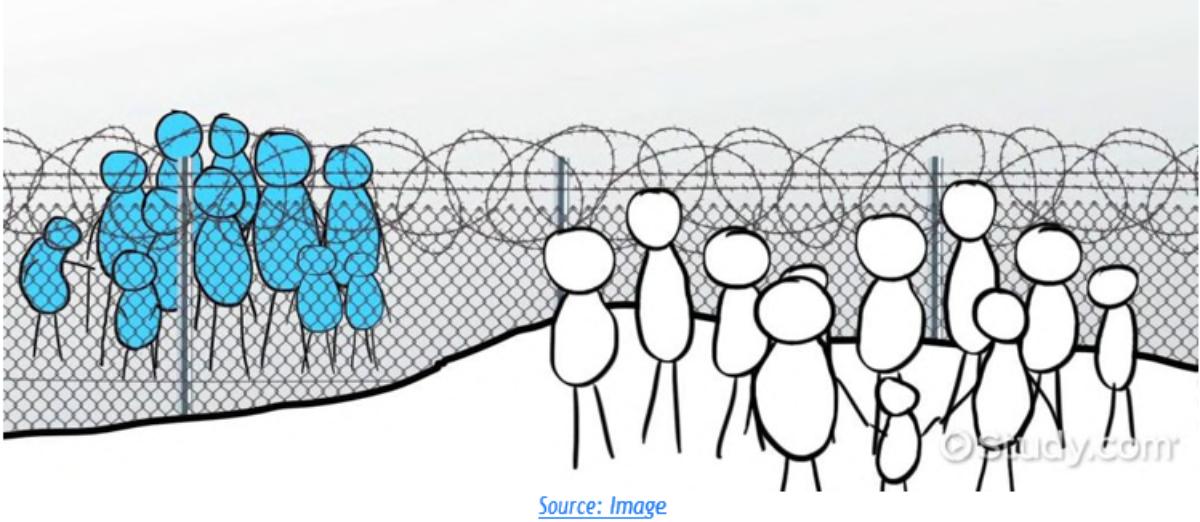
The state is constitutionally obliged to provide justice, equality in worship and liberty of belief for all religions, backward castes and tribes which have been suppressed for centuries by the conservative religious hierarchies.
Because India’s struggle for freedom from colonial rule, was also a struggle for freedom from social injustice, communal prejudice, religious taboos, superstition and caste oppression by religion-based hierarchies.
The Indian society has still to struggle to become a modern democracy for constitutional values to become societal norms. To become a modern state in the contemporary world, India will need to prohibit its politicians from spreading falsehoods and myths to slight other religions.
India’s voting patterns still follow caste and community vote banks, which obfuscates liberty in exercising democratic choice.
India’s politicians frequently use primeval or medieval analogies to inferiorize other communities, to desecrate or demolish places of worship of other communities with propaganda that exult vandalism as restoration of religious glory to redress medieval grievances.7
As such-like majoritarian practices do not stand the test of country’s constitutional morality, restitution of any medieval or colonial grievances must progress through constitutional and judicial processes, rather than regressive practices that impede development of societal ethics.
How far back in history medieval grievances need to be aroused to satisfy Gog and Magog or Yajuj and Majuj of majoritarian politics?
6 Interview Rajeev Mehrotra asked Swami Ranganathnanda (died April 2005), the 13th President of Ramakrishna Mission on political parties using religious ideology or faith of the people to wield political power. Swami Ranganathnanda unequivocally stated: “communal political parties and a secular state can never go together. As politics bring the uncouth, trickery and even violent behaviour, the religion must be retrieved from such situations. The centres of religion should function for peace, harmony and teach humanistic attitude.”
7 op cit. Ajai Kumar Singh, “Concerning Religion” in Discovering New India, A Ravindra and Priyanca Mathur, “in recent years, a trend rooted in religious hatred and division has gained credence in India to justify prejudice and even violence. Violent mobs have been allowed to take law in their own hands. Such acts are rarely condemned by those in power. Sometimes such acts appear to have been encouraged by them.” Jain University Press, Bengaluru, p 73.
Part 2
Action Plan to Implement Social Cohesion Policy based on Constitutional Values
Aims and Objectives

The first step is to identify Constitutional values and principles of Constitutionalism that should be imbibed in the society? To build an effective social cohesion policy, the State would need to take a “whole of society approach”.
The policy for implementing social cohesion and constitutional values are discussed in the following six progressive stages of:
- Agenda Setting and Validation;
- Policy Adoption and Verification;
- Implementation Milestones approved in the Legislature and the Executive Branches;
- Strengthen implementation of Policy by Civil Society Initiatives, Inter-state Cooperation and Political Protocols;
- Review, recalibration and Audit;
- Legislations required for professional oversight and accountability consistent with
Stage One

a.) Preparatory Stage: Public Initiatives and Activism. To prepare the strategy and content of social cohesion policy requires: Inter-University Network for Constitutional Values to build public opinion, the content and syllabus. To understand public opinion on aims and objectives of social cohesion requires Survey of Public Demand for Social Cohesion. To build champions for social cohesion and constitutional values in public rural and urban sectors and State Assemblies requires a Coalition of Youth and Activists for Constitutional Values.
- Legislative Initiatives. Legislative authorisation for Social Cohesion policy, budget allocation and review process; Approval of Constitutional Counsellors in the State; Organisation of caucus of Young Parliamentarians and Legislators for Social Cohesion and Constitutional Values in their constituencies.
- Executive Strategy and Action Plan. Make social cohesion policy; Implement Action Plans in all public and private sector establishments; Financial Planning and Budget, Pilot Projects and Roll Out, Outcome Assessment and Policy Review.
- Foundation for Social Cohesion and Inter-State Convention to Advance Constitutional Values for implementation of Social Cohesion Policies and sharing of experiences to disseminate Constitutional Values in different partner states of India;
- Union and State Legislations required for regulations; set up regulatory authority to audit, Assessment of Outcome and Review of Policy and Implementation.
Stages 2 to 10. Legislative and Executive Implementation of Social Cohesion Plan:
On receiving the Legislative authorisation of Social Cohesion Policy, the State Government has to develop a broad coalition of interests to launch Implementation Plan by Ministries of Home Affairs; Education; Finance; Industry and Corporate Affairs; Health; Agriculture, Rural Development; and Public Information.
Discuss six step policy assessment for knowledge creation on content and syllabus making, implementation and dissemination plans for social cohesion based on constitutional values, with inputs from domain experts on: a) Barriers; b) Limitations; c) Opportunities; d) Options; e) Methods; f) Feedback and Review Alternatives.
How the State Assemblies and Governments should facilitate funds, e.g. (state budgets, CSR, crowd funding, individual contributions to support different initiatives. Design a feedback on public demand levels at Local, District and State levels.
How should post-graduation course in Constitutional Values develop at the state and private universities to create a cadre of State Constitutional Counselors (SCC) with career tracks in the Executive, the Legislative Branches, and in the Private sector industries?
Design customized courses for all teachers; for students in all schools from class 1 to 12? Design 3-year college under-graduate course for master trainers for dissemination in urban unorganized sector and in village panchayats.
Appointment of State Constitutional Counselors through a competitive selection in the Executive and Legislative branches.
Conduct Certificate courses for Dept. of Civil and Police services; in the Courts; NGOs; Corporate Offices; Banking; Tourism and Transport services; Public and Private sector Industries? Develop a cadre of Master Trainers for RWAs; factory unions and Panchayats and unorganized sectors?
The States should raise funds for Foundation for Social Cohesion to support for NGOs to offer training in social cohesion values in the under-served segments of society.
Organize inter-State Convention to Advance Constitutional Values (CACV) for cooperation between the states to exchange knowledge and implementation experiences in their Social Cohesion Policies in eight segments:
- Educational,
- Technology for Dissemination,
- Financial,
- Security,
- Protection of Religion from Political Opportunism,
- Design and Implementation of State Policy,
- Strengths and Limitations of civil society initiatives,
- Findings from District levels and
Political Compact for Compliance with Constitutional Values. A political protocol made between all political parties should lead to a legally binding agreement to advance constitutional values and compliance by all parties against communalism, casteism in selection of candidates, penalties to be imposed on hate speeches during electoral campaigns.
Legislations and Statutory authorities that need to be developed at the State and National levels for professionalization of legislative oversight and accountability consistent with principles of constitutionalism.
Conclusion
As natural instincts of man are to subjugate and dominate the other, majoritarian politics seeks to mobilize largest communities to hold political primacy over minorities.
States with multi-cultural and multi-denominational diversities could drift into majoritarianism that begins with inferiorisation of communal or ethnic identities; polarization to consolidate electoral vote banks by building fear, intolerance, resentment and hate towards others.
An alternative for stability could be for the states to develop a policy for social cohesion based on constitutional values. This direction would need to mobilize ordinary public and constitutionalists to reinforce social trust, pluralism and secular values through knowledge creation and dissemination throughout the society.
Ravinder Pal Singh holds an MPhil in International Relations from Jawaharlal Nehru University, New Delhi. He was a Senior Fellow at the Institute for Defence Studies & Analyses, New Delhi. As a Ford Fellow at the University of Maryland, he researched on the United States politico security decision-making processes. Awarded McArthur grant, he was on panel of non-governmental experts for developing the UN Arms Register on Transparency.
At Stockholm International Peace Research Institute (SIPRI), he led the research projects on Arms Procurement Decision-Making processes in China, India, Israel, Japan, South Korea and Thailand. Later in Chile, Greece, Malaysia, Poland, South Africa and Taiwan.
Oxford University Press, UK published this two research volumes in 1997 and in 2001. As founding member and Senior Fellow at the Geneva Centre for Democratic Control of Armed Forces, Ravinder Pal Singh researched on Parliamentary oversight of Security Sector and consultant to NATO Parliamentary Assembly on security sector reforms. He led the UNDP Mission on Security Sector Reforms in Former Republic of Yugoslavia.
He has lectured, researched and published in over 30 countries on security sector reforms; Parliamentary oversight and arms procurement accountability; gender empowerment; defence budget alternatives for the UN Dept. of Disarmament Affairs; United Nations Institute for Disarmament Research (UNIDIR); American Association for the Advancement of Sciences; Transparency International on Corruption in Arms Trade; Pugwash Conferences on CSBMs in South Asia; Bonn International Centre for Conversion (BICC); Ethnic Nationalities Affairs Council and Parliamentary Committee Representing the Foreign Affairs of Myanmar.
As Senior Fellow Stockholm University 2003- 2005, Ravinder Pal Singh conducted 2nd Track India-Pakistan dialogue on common security. He contributed a Chapter for Carnegie study: “Getting India Back on Track”, and has presented papers at the UN Arms Trade Treaty (ATT) Review Conferences, Geneva.
His current work is on building strategies and processes for Social Cohesion based on Constitutional Values was published by Policy Watch, New Delhi, January 2024.

